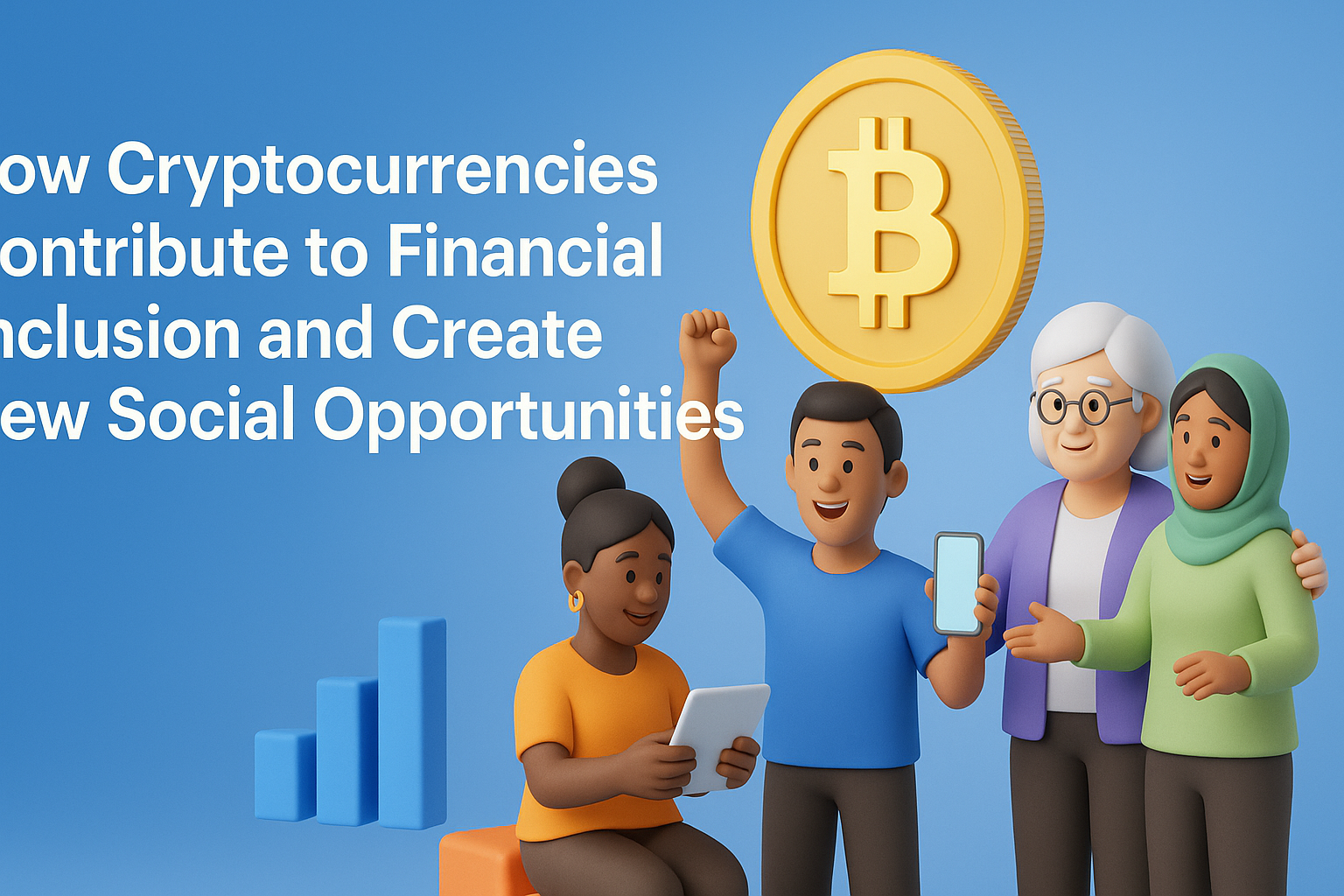How Cryptocurrencies Contribute to Financial Inclusion and Create New Social Opportunities

The Social Impact of Cryptocurrencies: Financial Inclusion and New Opportunities
Cryptocurrencies were born from a crisis of trust in traditional financial institutions. But over the past decade, they’ve evolved far beyond a rebellion against banks — they’ve become a catalyst for financial inclusion. In regions where access to basic banking services remains a luxury, crypto has opened the door to a new kind of economy: decentralized, permissionless, and borderless.
Over 1.4 billion adults globally remain unbanked, according to the World Bank. That’s not just a statistic — it’s a systemic failure. Traditional banking infrastructure often excludes people due to geography, lack of documentation, or high transaction fees. Cryptocurrencies, particularly mobile-first solutions like Bitcoin’s Lightning Network or stablecoins like USDC, allow users with only a smartphone to store value, send payments, and access financial tools without intermediaries.
In countries with unstable currencies, crypto is more than an investment — it’s a survival tool. In Venezuela, Argentina, and parts of sub-Saharan Africa, people turn to crypto to escape hyperinflation, preserve savings, and bypass capital controls. For them, a digital wallet is a lifeline.
Beyond personal finance, crypto is transforming how aid is distributed. NGOs are experimenting with blockchain-based systems to send direct assistance to communities in need, reducing administrative costs and ensuring transparency. Projects like Giveth or UNICEF’s CryptoFund are reimagining how philanthropy works in the digital age.
Still, the path isn’t without obstacles. Limited internet access, low digital literacy, and the volatility of crypto assets remain serious challenges. But innovation is racing ahead — second-layer solutions, user-friendly interfaces, and education programs are making blockchain tools more accessible than ever.
What’s most revolutionary isn’t the technology itself — it’s the redistribution of power. In the old system, financial access depended on institutions. In the crypto age, it depends on code — open, auditable, and inclusive.
The future of crypto isn’t just in the hands of investors or developers. It belongs to farmers in Kenya using blockchain to sell crops, to migrant workers sending remittances without 20% fees, and to women in conservative societies gaining financial autonomy for the first time.
Financial freedom isn’t a privilege. It’s a right. And cryptocurrencies, despite their flaws, are making that right a reality for millions.